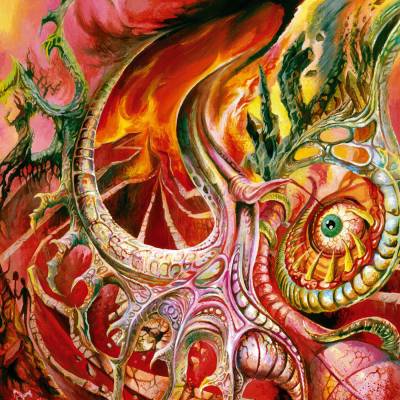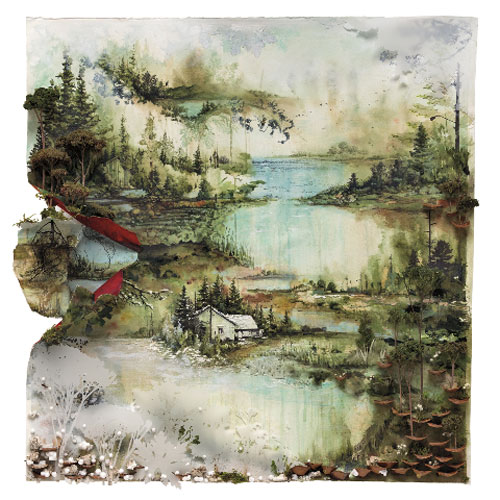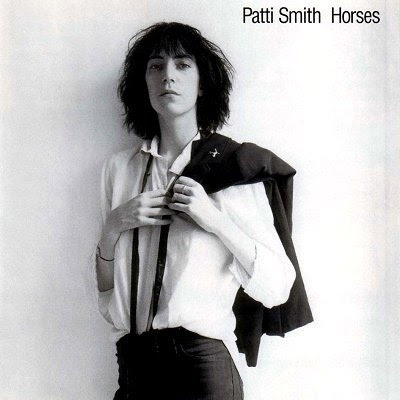 Antichrist- Sacrament of Blood
Antichrist- Sacrament of BloodLost to the Sands of Time until it finally found its release this year, Antichrist's Sacrament of Blood is a blistering, demonic mass of Satan worshiping Bestial Black Metal circa 1994. For whatever reason, Sacrament of Blood remained unreleased for sixteen years. I did a little research as to why this was, but found nothing: an acquaintance of mine who has shared correspondence with members of Blasphemy said that real life got in the way at some point and the band never got around to releasing the album. And it is interesting to think about the possibilities had this album been released on time: it was recorded in during the infancy of Bestial Black Metal, and the band hailed from the same horrific crib as Blasphemy(the hellish landscape of British Columbia). Would history have looked as kindly upon this as they did upon Fallen Angel of Doom?
But what could have been means little now, and Sacrament of Blood is a slab of filthy misanthropic noise that feels right at home no matter the era of it's release. The sheer Satanic aggression on display here is truly impressive: each track is short and leaves little room for things like breathing or humanity. Antichrist are here to kick down the door of the local coven, rape the nuns and burn the fucker down, and that is exactly what they accomplish here. The riffs are the highlight: plenty of tempo changes keep things interesting, and few albums will create as many sudden explosions of head-banging this year. The vocal attack is impressive and varied, even if the reverb is a bit on the obnoxious side. It is also worth noting that the entire album was recorded live in a single day, which considering the very even mix and the nasty guitar and bass sound, is massively impressive.
There is a real Crust Punk vibe to the entire thing: it feels like one should be sucking down a beer in some basement while watching the band go through their set and after the show going out back and smoking a joint. Sacrament in Blood is not trying to suffocate you with overly done atmosphere or open portals to Hell in your kitchen. The band are trying to kick your ass and have it be as much fun as possible. In a scene that has become incredibly serious, self absorbed and frankly internet hip, Sacrament in Blood stands out aesthetically from the rest of the pack, and pretty much shits all over many of the super-serious, Occult-and-HP Lovecraft obsessed bands peddling their Blasphemy worship out there today. Only Morbosidad seem to have the same vibe, and no doubt the guys in Morbosidad would have loved this had it been released in 1994(and should be loving it now).
There are no real fault here, other than the vocal reverb and the rather corny samples that will evoke Goregrind more than Bestial Black Metal, but those are small things in the face of the overall package. My final score is not indicative enough to point out that you, as a fan of Bestial Black Metal, should be getting this album right now. Truly required listening, with an attitude and approach that hopefully a few bands will imitate in the future.
Rating: 9/10
But what could have been means little now, and Sacrament of Blood is a slab of filthy misanthropic noise that feels right at home no matter the era of it's release. The sheer Satanic aggression on display here is truly impressive: each track is short and leaves little room for things like breathing or humanity. Antichrist are here to kick down the door of the local coven, rape the nuns and burn the fucker down, and that is exactly what they accomplish here. The riffs are the highlight: plenty of tempo changes keep things interesting, and few albums will create as many sudden explosions of head-banging this year. The vocal attack is impressive and varied, even if the reverb is a bit on the obnoxious side. It is also worth noting that the entire album was recorded live in a single day, which considering the very even mix and the nasty guitar and bass sound, is massively impressive.
There is a real Crust Punk vibe to the entire thing: it feels like one should be sucking down a beer in some basement while watching the band go through their set and after the show going out back and smoking a joint. Sacrament in Blood is not trying to suffocate you with overly done atmosphere or open portals to Hell in your kitchen. The band are trying to kick your ass and have it be as much fun as possible. In a scene that has become incredibly serious, self absorbed and frankly internet hip, Sacrament in Blood stands out aesthetically from the rest of the pack, and pretty much shits all over many of the super-serious, Occult-and-HP Lovecraft obsessed bands peddling their Blasphemy worship out there today. Only Morbosidad seem to have the same vibe, and no doubt the guys in Morbosidad would have loved this had it been released in 1994(and should be loving it now).
There are no real fault here, other than the vocal reverb and the rather corny samples that will evoke Goregrind more than Bestial Black Metal, but those are small things in the face of the overall package. My final score is not indicative enough to point out that you, as a fan of Bestial Black Metal, should be getting this album right now. Truly required listening, with an attitude and approach that hopefully a few bands will imitate in the future.
Rating: 9/10










